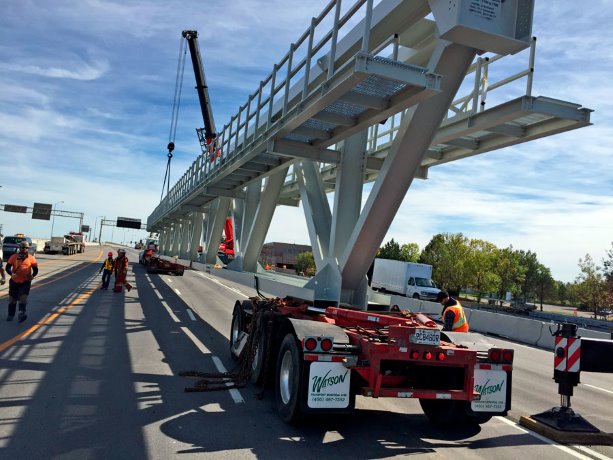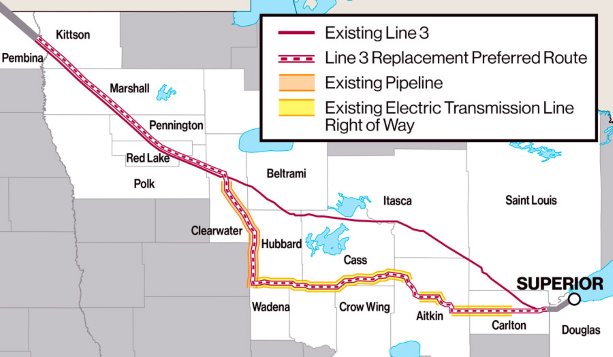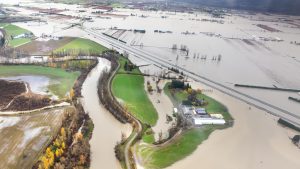Federal infrastructure commitments and pipeline approvals dominated discussion as national construction industry stakeholders reflected on the biggest developments in their sector over the past 12 months.
On pipelines, both John Gamble, president and CEO of the Association of Consulting Engineering Companies – Canada and Paul de Jong, president of the Progressive Contractors Association of Canada (PCA), said the government’s November decision to approve both the Kinder Morgan pipeline from northern Alberta to Burnaby, B.C. and the Enbridge Line 3 pipeline from Edmonton to Wisconsin will have far-reaching implications for the construction industry and the broader economy.
Addressing infrastructure, Gamble and Michael Atkinson, president of the Canadian Construction Association, said the Liberal government’s commitment to a substantial infrastructure investment plan in its 2016 spring budget, after making major promises during the 2015 election campaign, also carried great significance for the sector.
Atkinson referred to the federal government’s spring budget commitment to boost spending on infrastructure to $125 billion over 10 years — a target further extended to $186 billion over 11 years in its fall economic statement — and said, "That has to be the story. It is the biggest federal commitment to infrastructure investment we have ever seen in modern Canadian history.
"Obviously it has direct benefits for the construction industry since we build infrastructure, that’s a no brainer. And for the general economy, the state of the country’s infrastructure is directly proportional to its ability to grow its economy. So particularly when talking about transit, when talking crossing borders, when talking provincial highways, airports, ports, it’s extremely important."
Also key, Atkinson said, is vertical infrastructure.
"Schools, hospitals, they contribute to the quality of Canadians’ life and also to the ability of Canada to attract investment and for Canada to attract entrepreneurs and skilled people," he said.
Gamble called the commitment to infrastructure spending an economic enabler that helps build Canadian communities. Now that the question of whether the government would commit to infrastructure has been answered, he said, the focus should turn to engaging the government to ensure the spending is done in an effective way to get the best results and the best return on investment for taxpayers.
"Certainly in our sector, it is important to us because there are construction engineering firms that are directly involved in every aspect of infrastructure," said Gamble. "And beyond that it enables economic activity such as the natural resources sector, it enables the ICI sector, it enables the commercial sector and of course a lot of construction engineering firms service those sectors as well."
De Jong similarly linked the two pipeline approvals to economic growth.
"Both of those projects are critical to the industry because they signal increased access to markets," said de Jong.
"In one case with Line 3, it’s working with our number-one customer, the United States, but also noting that our number-one customer has also become our number-one competitor. Having access to tidewater on the Pacific coast is critical so we can begin to ship our product to international buyers."
Gamble addressed pipelines in the context of resource and commodity weaknesses, which he said remained a big story in 2016. "Uncertainty in the resources sector has been enormous," said Gamble.
"On so many fronts we have uncertainty. We have the soft commodities market driven by external forces, we have the plummeting oil prices, we have the uncertainty around pipelines and all the hyperbole around pipeline projects, and hyperbole from both sides which is not constructive in moving things forward.
"Luckily we are ending the year with a very pragmatic decision by the federal government. Given the constituency of the Liberal party and where their support comes from it must have been a very difficult decision for the federal government to approve those two pipeline projects."
De Jong noted that his membership, which he said consists of "progressive" firms that fight for open access to markets without the restrictions associated with traditional unions, has strong roots in Western Canada and thus continued to struggle in a climate of low commodities prices. But he said the economic constraints forced PCA members to collaborate and find ways to excel.
"It really drives innovation and renewed flexibility," said de Jong.
He said the PCA was also celebrating two open-access victories. First, with open management a contentious issue on a B.C. clean energy project, a PCA member obtained a major contract, and then an Ontario Labour Relations Board decision in Ontario’s Windsor-Essex region cleared the way for open-access bidding on school board projects. Both developments were described as precedent-setting and good news for the association, he said.
Atkinson also identified an Ontario news story as having significant national implications, citing the Reynolds-Vogel report on Ontario’s Construction Lien Act that recommended comprehensive modernization of prompt payment policies in the construction sector. Those prompt payment reforms may well become the new standard across the country, Atkinson said.
"There is no question that prompt payment is an issue right across the country," said Atkinson. "I know that will continue to be a major focus for us into 2017."












Recent Comments
comments for this post are closed